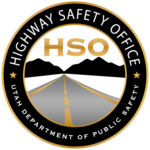Summary of Utah's DUI Laws
Summary of Utah's DUI Laws
Utah's DUI laws are comprehensive and carry significant penalties, even for a first offense. They aim to prevent individuals from operating a vehicle when their ability to drive safely is impaired by alcohol, drugs, or a combination of both.
Key Aspects of Utah's DUI Law:
-
Lowest BAC Limit in the Nation (0.05%):
- Utah is the only state where the prohibited blood alcohol concentration (BAC) for drivers 21 and older is 0.05% or higher. If your BAC is at this level or above while operating a vehicle, you can be charged with a DUI, regardless of whether your driving appears impaired.
- This is a "per se" law, meaning the BAC itself is enough evidence for a charge.
-
Impairment to Any Degree:
- Even if your BAC is below 0.05%, you can still be charged with a DUI if you are found to be under the influence of alcohol, drugs (including prescription or over-the-counter medications), or a combination of both to a degree that renders you incapable of safely operating a vehicle. This covers situations where observable impairment exists even without reaching the 0.05% BAC.
-
"Not a Drop" Policy for Underage Drivers:
- For drivers under 21, Utah has a strict "zero tolerance" or "not a drop" policy. This means any detectable amount of alcohol in their system while driving can result in a DUI charge.
-
Commercial Drivers:
- Drivers operating commercial vehicles face a stricter BAC limit of 0.04% or higher.
-
Actual Physical Control:
- You don't necessarily have to be actively driving to be charged with a DUI. If you are found to be in "actual physical control" of a vehicle while impaired (e.g., sitting in the driver's seat with keys, even if the engine is off), you can still be charged.
-
Implied Consent Law:
- By operating a vehicle on Utah roads, you are deemed to have given your consent to chemical tests (breath, blood, or urine) if suspected of DUI.
- Refusal to submit to a chemical test can result in immediate driver's license suspension and carries separate, often more severe, penalties than a DUI conviction itself.
-
Penalties (General Overview - Can Vary by Case):
- First Offense (Class B Misdemeanor):
- Minimum 48 hours in jail or community service/electronic home confinement.
- Significant fines (typically starting around $700, but often exceeding $1,300 with fees and surcharges).
- Driver's license suspension (often 120 days).
- Mandatory alcohol/drug screening and assessment, often leading to required education or treatment.
- Possible requirement for an Ignition Interlock Device (IID) for a period, especially if BAC was 0.16% or higher.
- First Offense (Class B Misdemeanor):
-
- Second Offense (within 10 years - Class A Misdemeanor):
- Increased jail time (e.g., minimum 10 days).
- Higher fines.
- Longer driver's license suspension/revocation (e.g., 2 years).
- Mandatory IID requirement.
- Intensive alcohol/drug treatment programs.
- Third Offense (within 10 years - Felony DUI):
- Significantly increased jail time or potential prison time (up to 5 years).
- Substantially higher fines.
- Longer license suspension/revocation.
- Mandatory IID and extensive treatment/probation.
- Aggravating Factors: Penalties can be enhanced if factors like a high BAC (0.16% or higher), having a minor passenger (especially under 16), or causing an accident with injury or death are involved.
- Second Offense (within 10 years - Class A Misdemeanor):
-
Ignition Interlock Devices (IIDs):
- Often required for DUI convictions, especially for repeat offenses or high BACs. An IID prevents the vehicle from starting if alcohol is detected on the driver's breath. The driver is responsible for installation and maintenance costs.
-
Administrative vs. Criminal Penalties:
- A DUI involves both criminal penalties imposed by the courts and administrative penalties (like license suspension) imposed by the Utah Driver License Division (DLD). These operate independently, meaning your license can be suspended even before a criminal conviction.
This summary provides a general overview, but DUI laws can be complex. For specific legal advice, it's always recommended to consult with a qualified Utah attorney.
For more information
Utah's Impaired Driving Program
Lynda Hansen
385-290-5305
[email protected]
